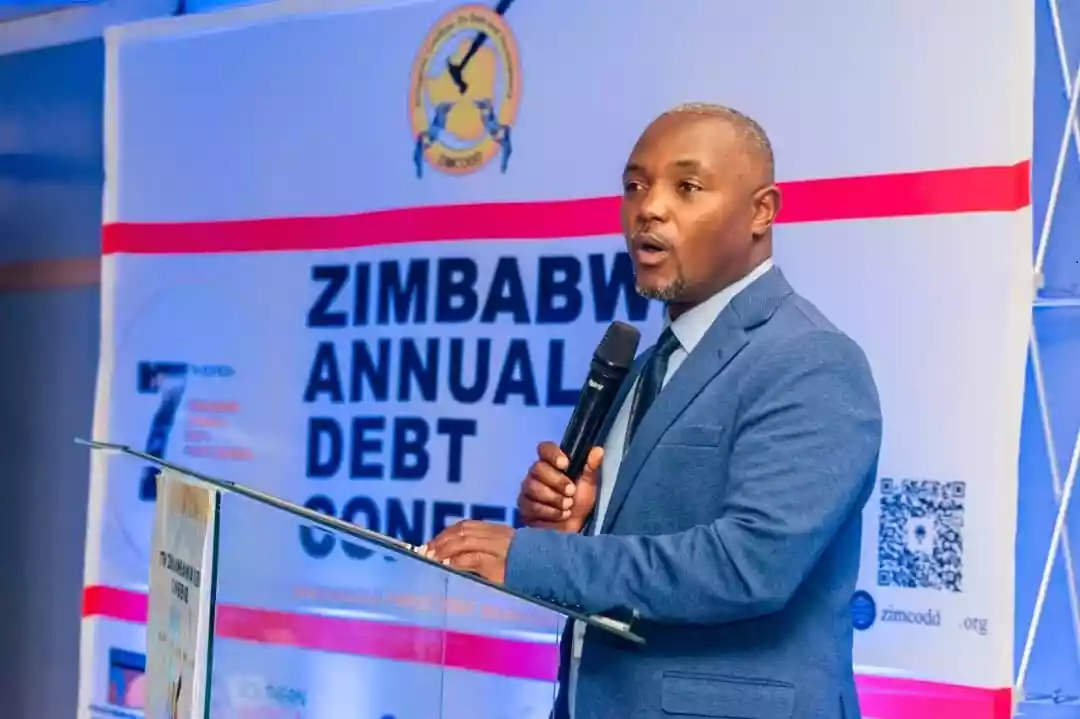
A fresh push to reform Zimbabwe’s debt law gathered momentum this week, with civil society piling pressure on Parliament to align the Public Debt Management Act with the Constitution.
John Mateko, executive director at the Zimbabwe Coalition on Debt and Development (Zimcodd), told a key conference in Mutare that legal misalignments had crippled oversight, leading to a series of questionable borrowings.
Such deals have previously sparked national outrage.
In a presentation during the Zimbabwe Debt Conference in the eastern border city, Mateko said debt campaigners must adopt the slogan “no loan without scrutiny” as part of a broader strategy to hold authorities accountable.
Zimcodd — instrumental in the 2015 enactment of the current law — is calling for a legal instrument that resonates with Zimbabwe’s 2013 Constitution to end perceptions that public debt management is weak.
Zimbabwe’s public and publicly guaranteed debt was estimated at US$21 billion at the end of last year — about 50% of the country’s US$44 billion gross domestic product — a burden blamed for pushing back development as massive sums are channelled toward servicing arrears.
“We must collectively commit to strengthening institutional reform through building the capacity of public institutions mandated to oversee public finances, including Parliament, the Auditor General’s office and others,” Mateko told the conference.
“Our new slogan must be: No loan without scrutiny. Legislative reform must continue to be on the agenda. We cannot rely on outdated colonial legislation. We call upon our Parliament to swiftly move on the alignment of the Public Debt Management Act with the Constitution of Zimbabwe. I am aware that the Minister of Finance has already started this process, but it must be swiftly concluded,” the Zimcodd boss noted.
- Chamisa under fire over US$120K donation
- Mavhunga puts DeMbare into Chibuku quarterfinals
- Pension funds bet on Cabora Bassa oilfields
- Councils defy govt fire tender directive
Keep Reading
The debt overshoot has shaken every facet of national life — from struggling industries to constrained banks.
In November, bankers escalated calls for the government to finalise a debt clearance plan being pursued under the stewardship of the African Development Bank, as Finance Minister Mthuli Ncube prepared to table the 2025 budget.
President Emmerson Mnangagwa in 2022 launched a structured dialogue platform with foreign creditors — who are owed over US$14 billion — to help craft a viable repayment plan.
The crisis has elevated Zimbabwe’s country risk profile. Companies seeking offshore credit lines have been caught in the crossfire. The Bankers Association of Zimbabwe (BAZ) said it was time to scale up engagement with creditors.
It is a vital plan that Zimbabwe requires.
But it has been affected by recent legislative moves, including the Private Voluntary Organisations Act, which has been blasted by the international community.
In a joint paper submitted to the government, BAZ and the Zimbabwe National Chamber of Commerce (ZNCC) said in November finalising the arrangement hinged on deepened cooperation with lenders.
Zimbabwe has made several attempts at debt relief, including through the Highly Indebted Poor Countries Initiative, but these have faced repeated roadblocks.
In 2016, Zimbabwe negotiated a repayment plan during the Bretton Woods institutions’ spring meeting in Lima, Peru, but this was derailed by then-president Robert Mugabe’s lukewarm stance.
The financial implications of isolation have been brutal, the ZNCC said in a separate submission to government. The chamber also raised red flags over the swelling debt stock.
The Public Debt Management Act is a standalone piece of legislation that outlines the legal framework for debt contracting, reporting, and the roles of both the Minister of Finance and Parliament.
While the law has improved governance in some respects, critics say gaps remain — particularly in enforcing reporting requirements and clarifying Parliament’s approval role.
Due to these gaps, some loans have been contracted without proper parliamentary scrutiny, and mandatory public disclosure has often been ignored.
Energy Mutodi, chairperson of the Parliamentary Portfolio Committee on Budget, Finance, and Investment Promotion, explained Parliament’s oversight role on debt.
“First of all, government negotiates every loan outside the borders of the country. We are there to ratify the agreement after looking at the pros and cons.
“Of course, government would have done all the work to negotiate, to receive the conditions, whether it’s the IMF or a bilateral agreement with China or any other partner.”
“They do the paperwork, they do the agreement drafting.
“In short, they agree, but they wait for us to approve the agreement. So, they bring it to Parliament for ratification. That’s one way we deal with this,” he said.
Mutodi also clarified that when Parliament approves a finance bill with a funding deficit, it grants the executive authority to borrow funding to finance the spending plan.






